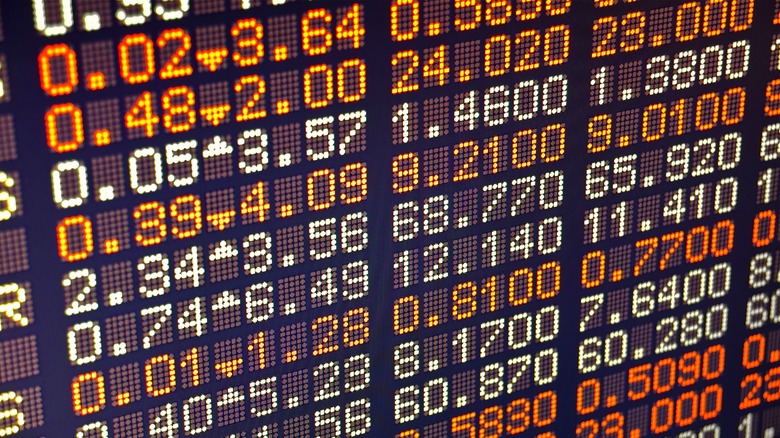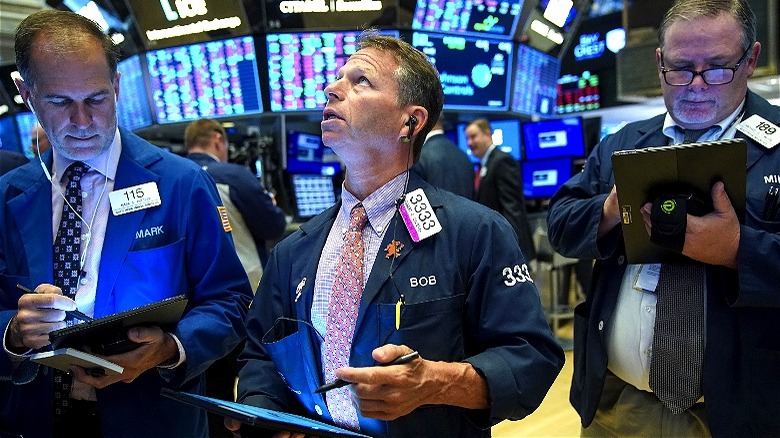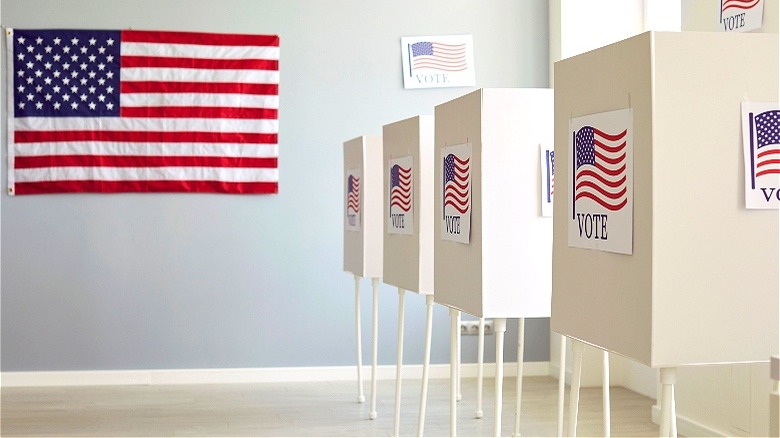Don't Let The 'September Effect' Fool You Into A Bad Investment Move
From cooler weather to back to school, September can be a transition month for many people. And, in particular, September can be a strange month for the stock market. While you might find yourself gearing up for sweater weather and cozy pumpkin-related snacks, markets are, instead, preparing for uncertainty. This is because September is the only month to average a negative return over the last 98 years. (According to Fisher Investments, an average of -0.78%, to be exact). However, this doesn't mean you should change your stock behavior or strategy in response to the September Effect.
Despite this historic average, September isn't necessarily a guarantee of negative returns. Looking back over the last almost century, the S&P 500 has actually been positive in September 51% of the time. However, some of the worst months in market history have happened in September, which has created a kind of bad reputation (and even a superstition) surrounding the month. For instance, the S&P precursor (the index didn't expand to 500 companies until 1957) in September 1931 lost an eye- watering 29.6%. More recently, September 2008 saw a loss of 9% after Lehman Brothers filed for bankruptcy on September 15.
Now, despite the persistent volatility in September returns, experts are hard pressed to agree on a singular cause for the September Effect (especially when you consider how much the stock market is influenced by outside policies like interest rates). With that said, let's dive into some of the likely culprits for the effect, along with a notable exception.
What causes the 'September Effect'?
It can be easy to forget that the stock market is ultimately run by people, and people are prone to post-summer vacation blues. At its simplest, some argue that the September Effect is nothing more than a side effect of the return-to-work mentality many on Wall Street might experience post-summer vacation. This can include not just the mental transition, but also the increase in potential home-life distractions, such as child care due to the restarting of the school year for most of the country.
Related to the return from summer vacation, one potential theory for the September Effect is that investors tend to choose bond investments over equities in September, which leaves less money to support stock prices, ultimately resulting in a decline. Yet another theory, however, centers on mutual funds; specifically, on fund schedules. For many mutual funds, their fiscal year ends on October 31, which means the funds will start to close out any losing positions in the final months of the fiscal year, starting in September. It's possible these targeted sales could negatively impact the market overall.
How elections change the numbers
Markets are largely influenced by the difference(s) between investor expectations and the country's economic realities. In this way, it's especially important to mention how much presidential elections can influence, and even change, the September Effect. Since the market is often forward-looking in assessing things like risk and opportunity, any political development can affect the stock market (in much the same ways things like wars and natural disasters can influence the market). And no time is more fraught with political influence than during a presidential election, especially two months out from Election Day.
Historically, Septembers in presidential election years tend to perform better than those in other years. Fisher Investments found that U.S. presidential election-year Septembers had positive returns 62.5% of the time, with a median return of 0.3%. Not only is this better than the month's overall average (at -0.78%), but it's also close to the all-month average. In 15 of the last 24 presidential elections (since 1925), September actually advanced stocks.
With that in mind, as the political atmosphere has grown more polarized in the U.S. in recent years, the divide between each political party's economic policies has widened. This makes it even harder to predict what the economic future of the country might be, even just a few months from today. This lack of certainty can cause the market to experience more volatility as investors respond to potential economic policies. This could be especially true for Election 2024, given the less-than-stellar labor market outlook, and the persistence of the Federal Reserve's high interest rates.


